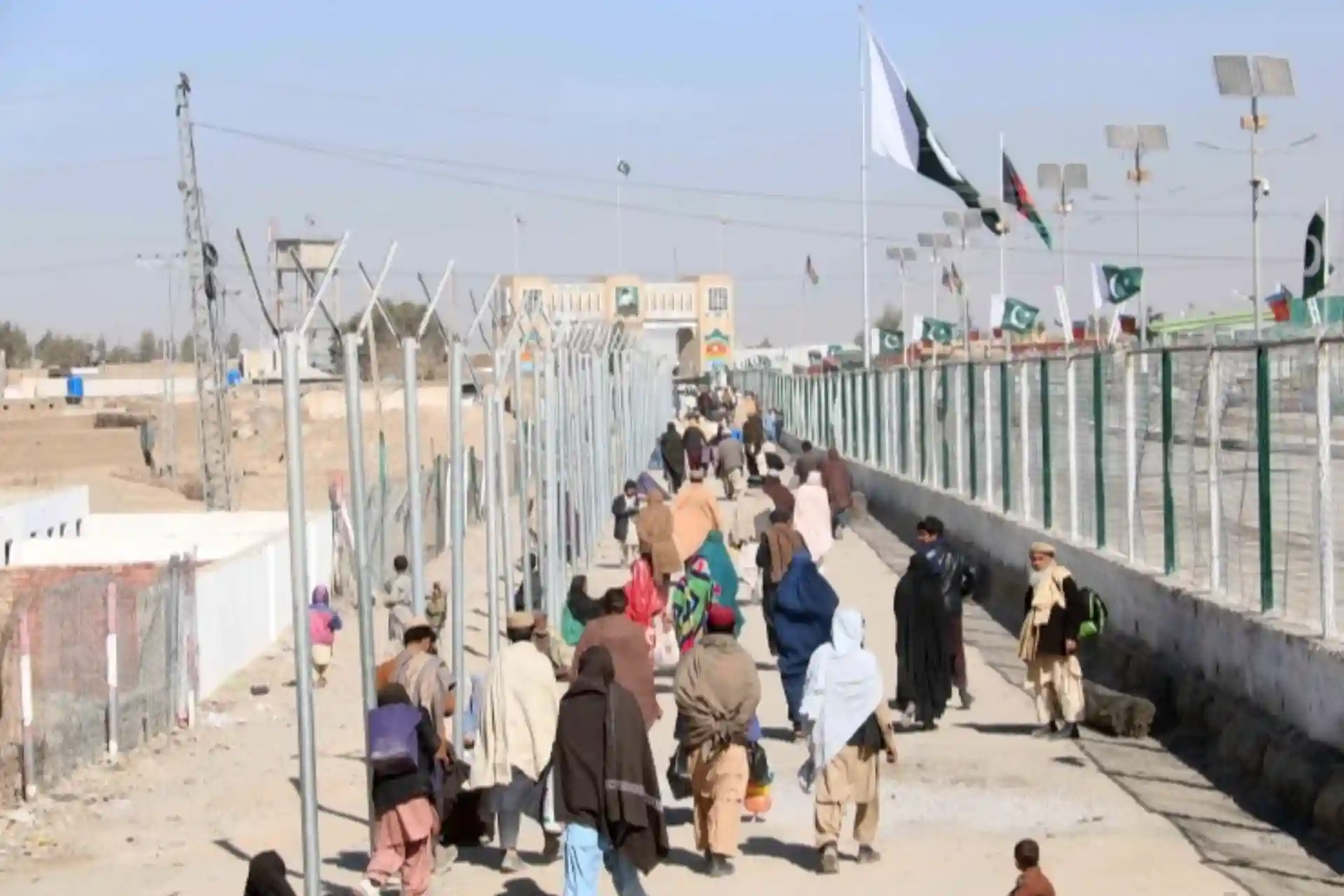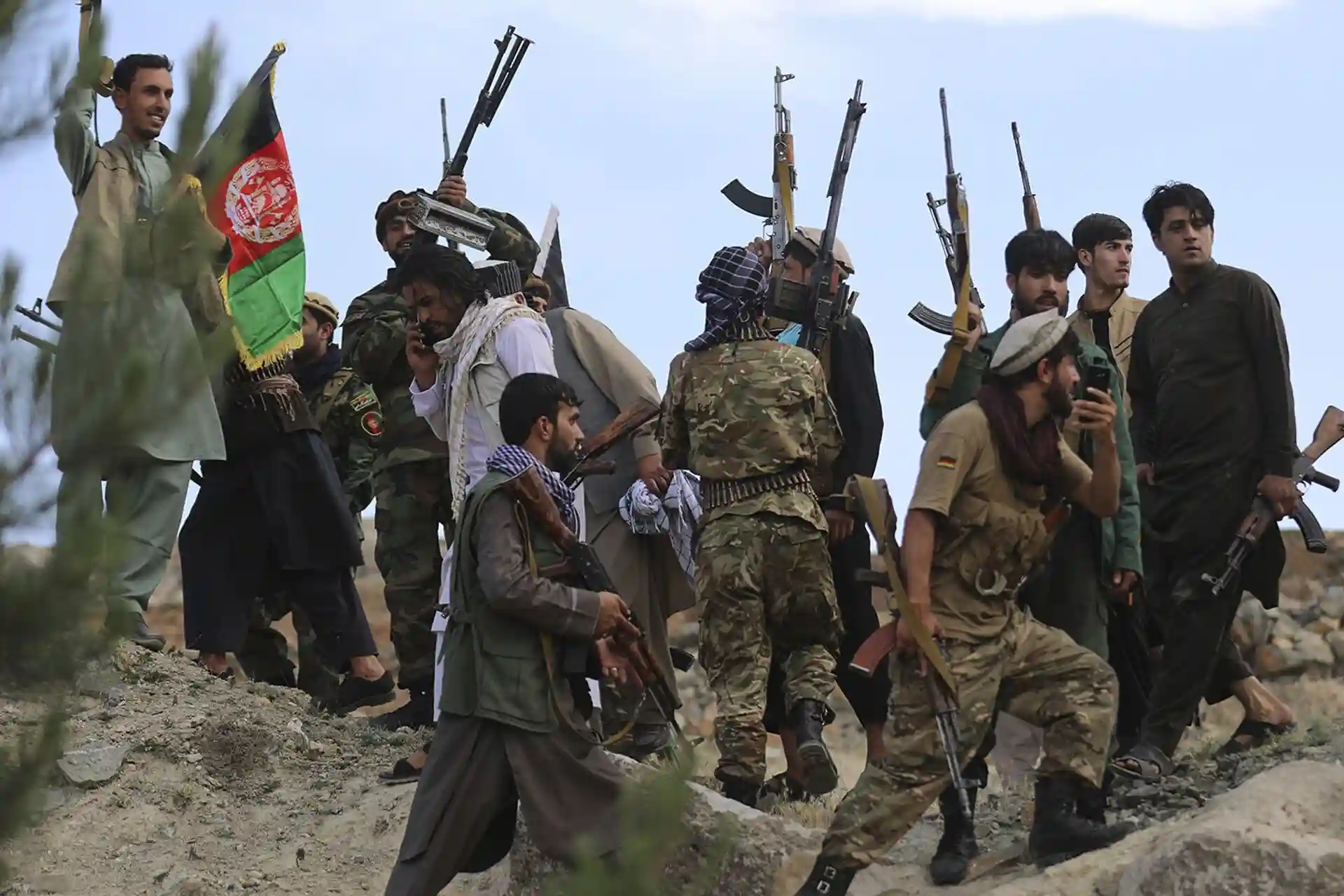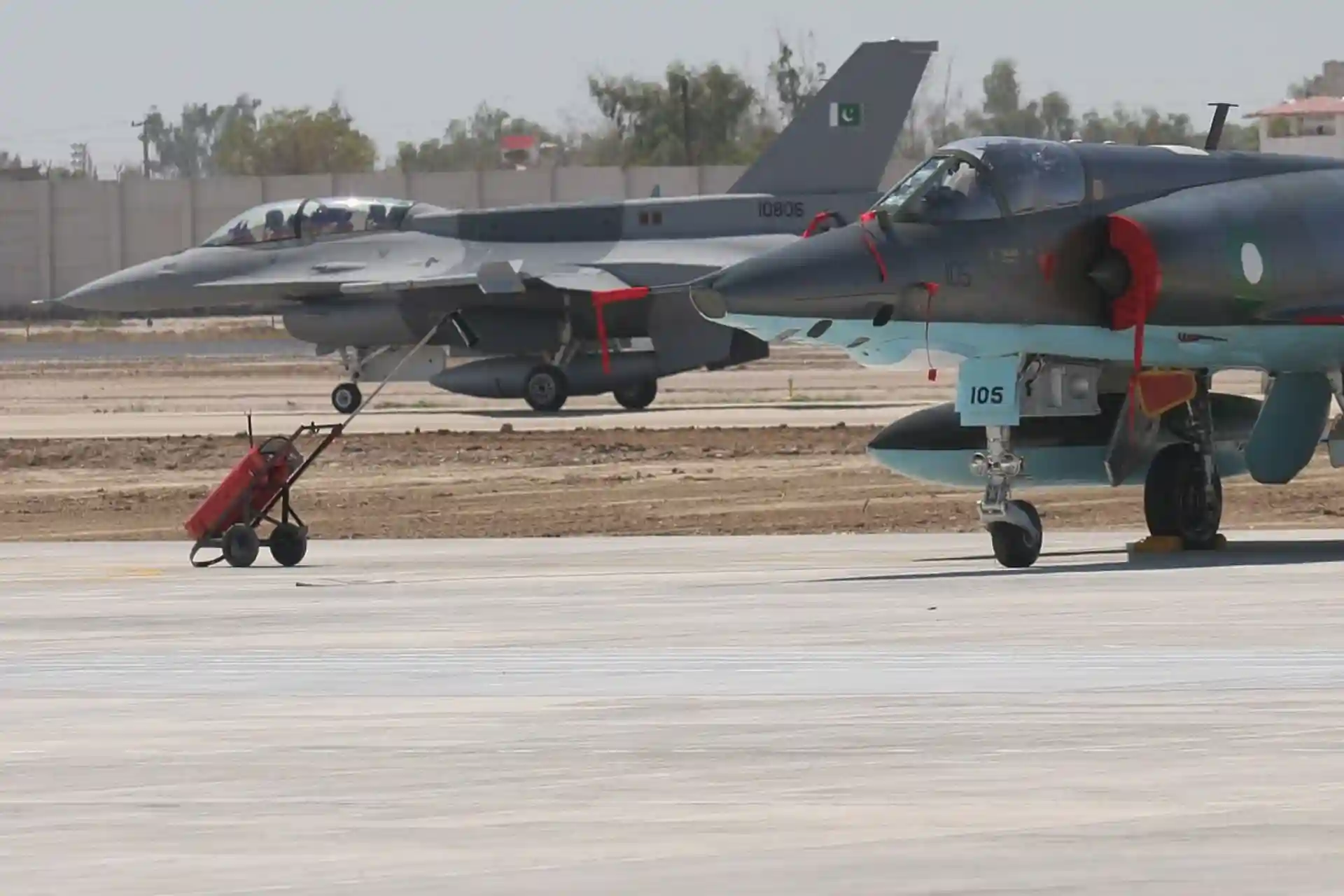Analysis: What is the cause of the conflict between Pakistan and Afghanistan?
Pakistan has always supported the Taliban, which defeated the two powerful empires of the world - the USSR and the USA, and has served as a refuge and support for the Taliban. However, after the Taliban came to power in Afghanistan, it damaged their friendship. Is this only due to today's reality or...
Pakistanis were overjoyed when the Taliban re-entered Kabul in August 2021. From the man on the street to the top brass, everyone hoped that Pakistan-Afghanistan relations would flourish under Taliban rule.
After all, Pakistan has not only hosted many Afghan Taliban leaders and fighters for decades , but also withstood intense pressure from Washington for its lenient treatment of the group during the US's control of Afghanistan from 2001 to 2021.
But since the US withdrawal, Pakistan's problems with Afghanistan have become even more acute than they were when Kabul was ruled by pro-Western leaders and US-led NATO forces fought the Afghan Taliban in the landlocked Central Asian state .
The deterioration in relations between Islamabad and the Taliban, once considered Pakistan's proxies, has come unexpectedly quickly, confounding the expectations of many Pakistan-Afghanistan observers.
The severity of the situation is illustrated by recent Pakistani airstrikes targeting camps of anti-Pakistan militants in Afghanistan's Paktika province . Within days, Afghans had been shelling Pakistani positions from across the border.
Who would have thought that relations between Pakistan and its former ally would be so strained?
From Islamabad's perspective, its problem with Afghanistan boils down to one simple fact: Kabul's unwillingness or inability to rein in anti-Pakistani militants, who use Afghanistan as a safe haven and base from which to launch terrorist attacks in Pakistan.
According to the Islamabad-based Pakistan Institute of Conflict and Security Studies, terrorist attacks in Pakistan increased by 40 percent in 2024 compared to 2023. A total of 530 security personnel, 489 civilians, and 950 militants were killed in terrorist attacks and counter-terrorism operations in 2024.
Pakistan's disillusionment with the Taliban can also be seen in the following words of army chief Syed Asim Munir: " The only difference between us and Kabul is the presence of the Tehrik -i-Taliban Pakistan (TTP) in Afghanistan and the spread of terrorism from across the border... and it will remain so until they ( the Afghan Taliban ) eliminate this problem . "
The TTP is active mainly in Pakistan's northwestern Khyber Pakhtunkhwa province, especially along the border with Afghanistan . In addition to the TTP, Pakistan also claims that Baloch nationalist insurgents are using Afghan territory to launch terrorist attacks, especially in the southwestern Balochistan province.
But for Kabul, terrorism remains Pakistan's internal problem and should be resolved through talks with the TTP, which is made up of Pakistani Pashtun tribes.
Although Pakistan once concluded peace agreements with militants operating in the country's border region, it currently refuses to negotiate with the TTP.
What is the reason for this ? All previous agreements have now collapsed, and the militants are using periods of relative peace to reestablish and consolidate their positions.
Islamabad says the TTP's demands are non-negotiable because it wants to impose a strict Afghan-Taliban version of Islam in the tribal areas and roll back administrative reforms in what was previously known as the tribal region.
Past conflicts
However, the roots of the problem between the two neighbors are much deeper. It is rooted not only in current events, but also in history .
Pakistani Pashtun tribes united under the TTP banner are ideological allies of the Afghan Taliban and have fought against US-led NATO forces.
In the 1980s and early 1990s, their tribal region became the center of the US-backed armed resistance against the then-communist Afghan government and the occupying forces of the former Soviet Union.
This means that their region has been divided into forty-five years of war , during which it has resisted two successive great powers.
These Pakistani tribes are also in contact with the Afghan Taliban, who are also predominantly Pashtun.
Many Pashtun tribes live on both sides of the Durand Line, a 2,640-kilometer-long border drawn between Afghanistan and what was then British India in 1893. Tribes living on both sides of the Pakistan-Afghanistan border include the Nurzai, Shinwari, Mohmand, Sadozai, Alizai, and Yusufzai.
After the British left in 1947, Pakistan inherited a part of British India that bordered Afghanistan.
However, the Durand Line, an internationally recognized border, is not recognized by Afghan nationalists, including the Taliban. The Afghan Taliban calls it an "imaginary line" and says it will never recognize it as a legal border.
This statement by the Afghan Taliban has intensified after relations between the two countries deteriorated.
As terrorist attacks in Pakistan increased, Islamabad also hardened its stance and took a series of harsh measures, including deporting tens of thousands of unregistered Afghan refugees to their home countries.
However, many of them returned to Pakistan, which only showed the wrong approach of this movement.
Pakistan, which began sealing its border with Afghanistan in March 2017 to stem the flow of militants, has recently implemented a stricter immigration system .
Previously, Pashtun tribes from both sides could cross the border on the basis of travel documents issued by local authorities . Many traveled without any documents .
Now , despite protests from the Afghan Taliban and local residents on both sides of the Durand Line, Pakistan has introduced a visa regime. Pakistan insists that this is crucial to fighting terrorism and ensuring border security .
Pakistan's efforts to curb smuggling have also angered the Afghan Taliban and local residents who rely on the informal transit trade.
Over the past two years, Islamabad has unilaterally supported these measures, which have strained relations with the Afghan Taliban and alienated many local residents.
Thus, Islamabad has ignored the fact that ties between Pashtun families and tribes, divided during the years of civil war in Afghanistan and conflicts in Pakistan's northwest border region, have only deepened through cross-border marriages and friendships .
Many senior figures in the Afghan resistance movement during the Soviet occupation and later the Afghan Taliban leaders who fought against US-led NATO forces lived in Pakistani cities and villages for decades, making them their second homeland.
Prospect
The urgent task for Pakistan and Afghanistan today is to defuse the growing tensions and restore normalcy and goodwill in their relations. Given the scale of the differences and the long-standing mistrust, this task is harder to accomplish than it seems .
As a first step, the two sides should resume dialogue without attracting media attention . This means that instead of making harsh public statements against each other, secret and quiet diplomacy may be a better option.
Islamabad, which played a key role in bringing the Afghan Taliban to the negotiating table with the Americans and led to the withdrawal of US-led NATO forces from Afghanistan, needs to reestablish and renew ties with the ruling administration in Kabul.
This means redefining the terms of the relationship, recognizing that the Afghan Taliban are no longer a resistance force , but the rulers of a sovereign country .
Islamabad has much to offer Afghanistan in terms of trade, investment, and diplomatic support. Pakistan already serves as a key supply route for Afghanistan under the Afghan Transit Trade Agreement.
Pakistan provided diplomatic support to the Afghan Taliban after they regained power. Now Islamabad must continue this path in cooperation with other friendly countries, including China, a major investor in Afghanistan .
Islamabad should take note of India's official engagement with the Afghan Taliban , as it marks a dramatic shift in New Delhi's stance towards the group.
Following a mid-level meeting in December last year, Indian Foreign Secretary Vikram Misri met with Taliban interim Foreign Minister Amir Khan Muttahida Qadri in Dubai in early January. This marks the highest-level engagement between New Delhi and the Taliban .
Former Pakistani diplomats believe that in such circumstances, Islamabad's goal should be to address Pakistan's security concerns by establishing constructive relations with Kabul, with the help of friendly countries such as China and the UAE.
However, it is also important to note that over the past 45 years, no government in Kabul has been able to fully control its territory - not even the combined forces of the once-powerful Soviet Union or the United States and its allies.
This means that the Afghan Taliban's reluctance to act against the TTP could be due to its problems with ISIS, a lack of opportunity to establish its own rule, or the risk of complicating the situation .
Since the Afghan Taliban returned to Kabul, the ISIS terrorist group has launched several attacks against the Taliban and its leadership . ISIS is trying to expand its influence in Afghanistan by recruiting new members from among Afghan and Pakistani Pashtuns.
The Afghan Taliban is unlikely to pressure the TTP, as Islamabad has demanded , as there are serious concerns that ISIS could use this to create a conflict between the two forces and turn dissident elements against the host country.
Therefore, Pakistan is forced to develop skillful diplomacy to restore relations and good relations with Afghans who need friends in the region and internationally.
Islamabad should take the initiative and take the first step to restore the damaged relations. This will create a favorable environment for the Afghan Taliban to respond to Pakistan's efforts in the interests of the broad interests of the two countries' peoples, which are proud of their common history, cultural values, religion, and mutual ties.
Amir Zia , journalist, political expert



